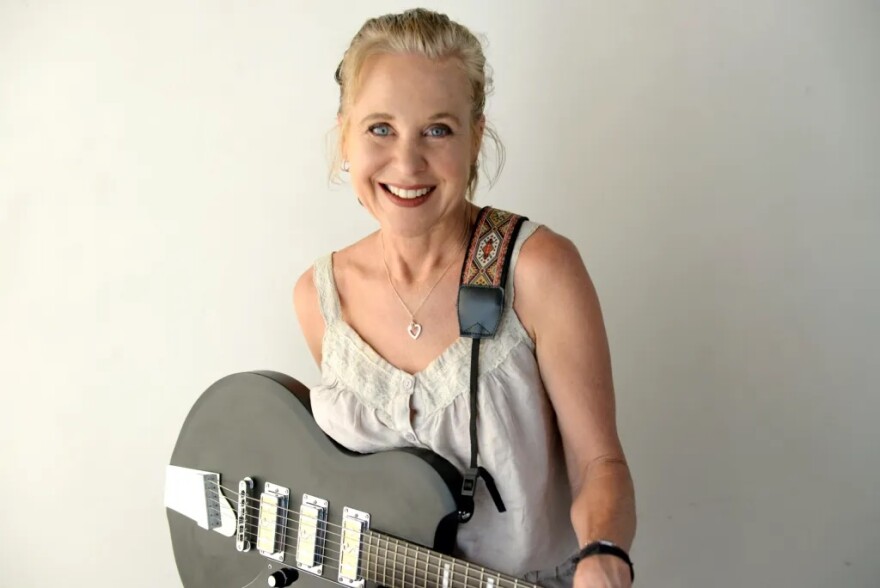Kristin Hersh doesn’t half-commit to anything—except maybe an entire album she’ll throw in the bin. “I made a whole record and trashed it before this,” she says of Clear Pond Road. “It was fine. It just wasn’t this one.” That “this one” is a shimmering, oddly gentle set she insists she never saw coming. “The sonic vocabulary fell together in an unsettling way. I’d just made a live-sounding solo record with a huge messy sonic boom. This was the opposite—glittery, on top of the beat, almost like Spanish guitar or Celtic music. Last thing in the world I expected to be doing.”
The title came from a street sign found in a junk shop, a talisman for her and her youngest son—now a pro surfer—after weathering the fallout of a family of six whittled down to two. “We thought, that’s where we’re going. If we put this sign everywhere we go, eventually we’ll attain enlightenment. I’m pretty sure that’s how it works, right?” she deadpans. For Hersh, place is inseparable from the songs. Clear Pond Road wanders between New Orleans and Southern California, with a stop on Constant Street in the Crescent City. “It’s a rough place, but it’s got this deep river of forgiveness. Redemption through sin is their mythology. My son stopped his bike one day and said, ‘Mom, all scars are beautiful… because you lived.’ Who is speaking through you right now? Could you please be a little kid again?”
Her lyrics blur the literal and the symbolic, because they don’t need to choose. In “Dandelion,” she sings, after midnight but we don’t have far to go. “It’s both,” she says. “When you’re in the van at midnight, you think, how many midnights are we all ahead? That’s the micro. The macro… I don’t know. Songs are smarter than we are.” Even a nod to Bewitched reruns is literal—“I lived on champagne and Nick at Nite”—and still manages to glow with meaning years later. “I’d never write a song about something I already knew. A song could be smarter than both of us. Sometimes it has to tell me what it’s about.”
If that makes her sound like a hippy, she’ll allow it—at least for a second. Writing for her various projects (solo, Throwing Muses, 50 Foot Wave) comes down to which guitar she grabs. “I draw Muses songs on my Tele or Strat, 50 Foot Wave on my Les Paul Junior, solo on my Collings. My drummers say it’s a stupid system, but I’ve been doing it a long time. Everything you do from that point on is to recreate the moment of inspiration. It has to breathe. The guy can’t die on the table during the operation.”
Hersh has played just about everywhere, though Vietnam still calls to her. She once met an Australian who swore he could book her there. “Then he moved into a tree,” she says, shrugging. In Australia she once played a club called The Big Tree—literally a giant tree. “They said, we’ll move the show because it’s raining. I didn’t care, so they drove me up to this big tree and I played in front of it. It was raining. That was my bad.”
For someone who calls herself a shy homebody, she still lives for the surprise of the road. “Every place you go, nothing is the same. Even the light switches are weird. It’s like, surprise me, Earth—and it does.” Sometimes, that surprise is a cobblestone street in New Orleans, a road sign in a junk shop, or a stranger’s tree in the rain. And if you’re lucky, you get the record she didn’t throw away.
Watch the interview above and then check out the video below.


